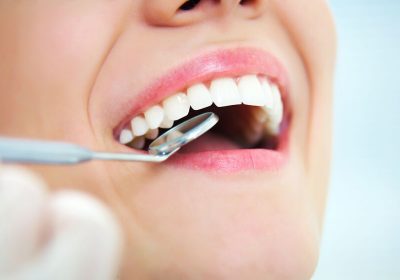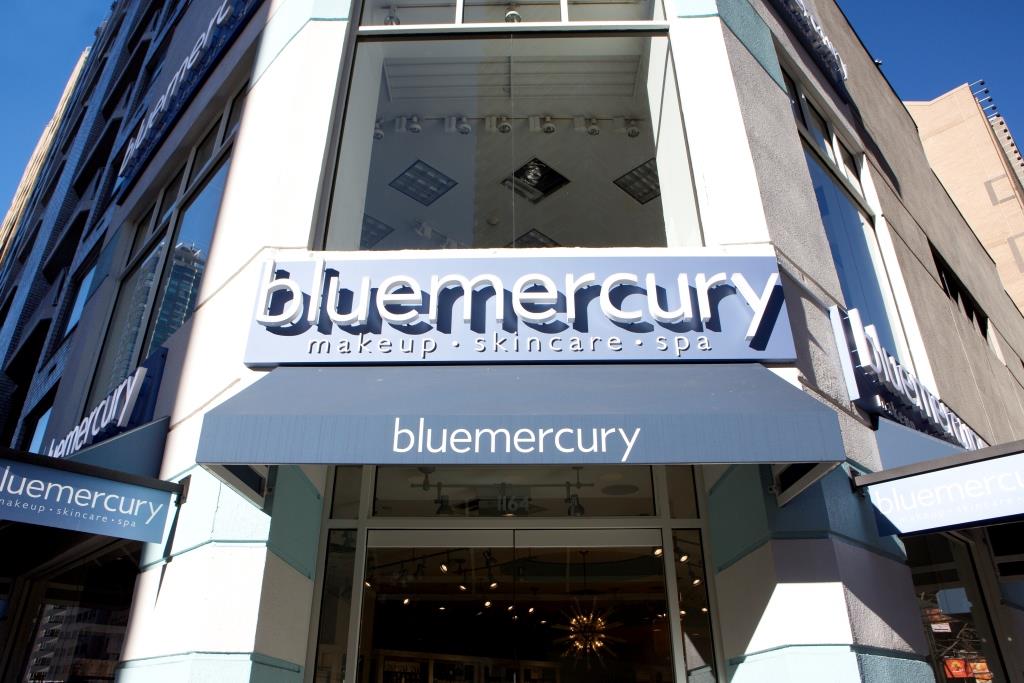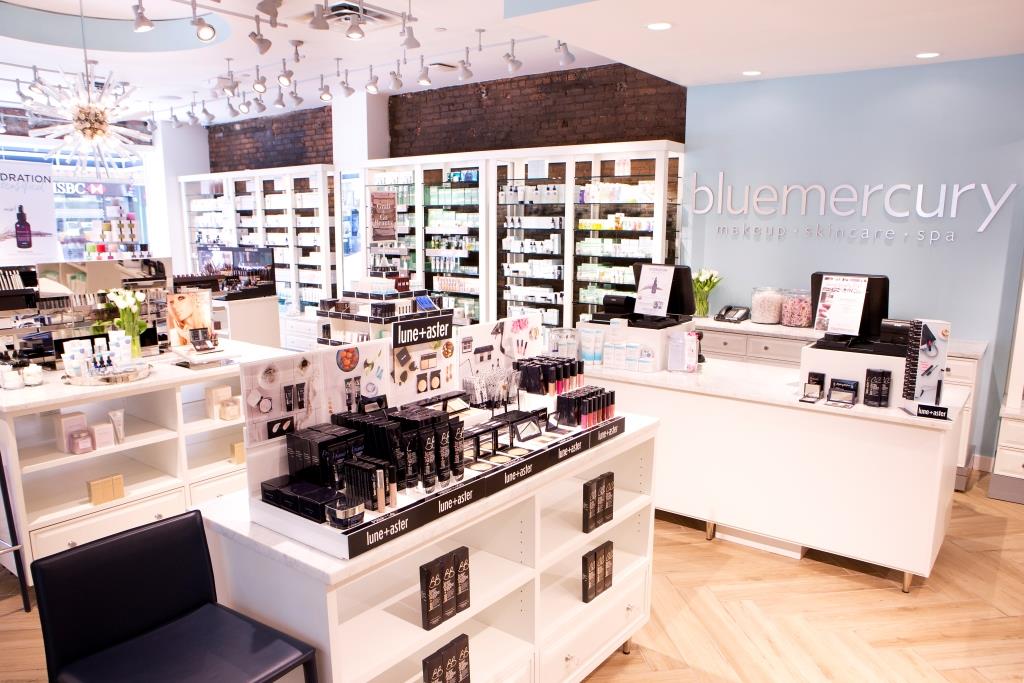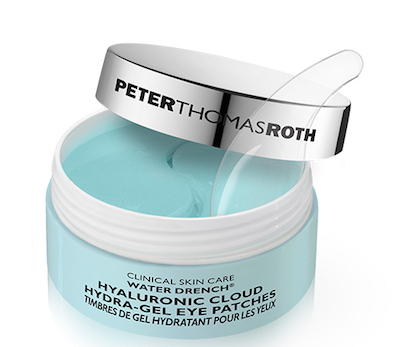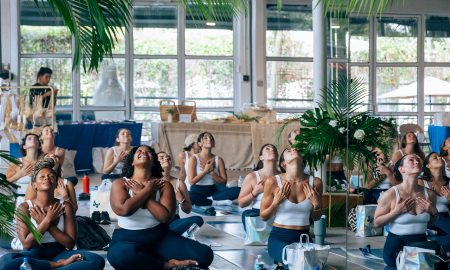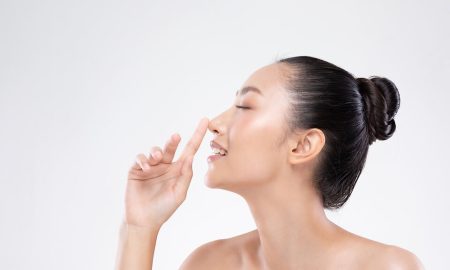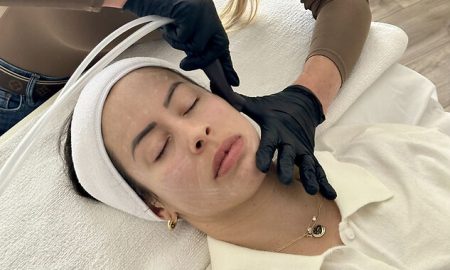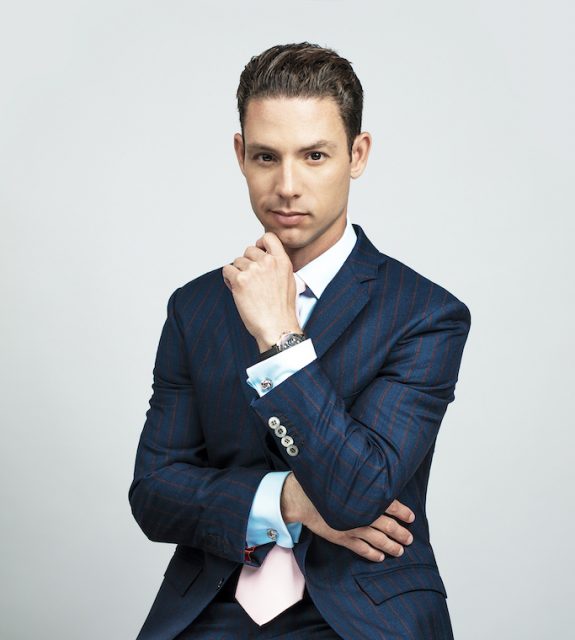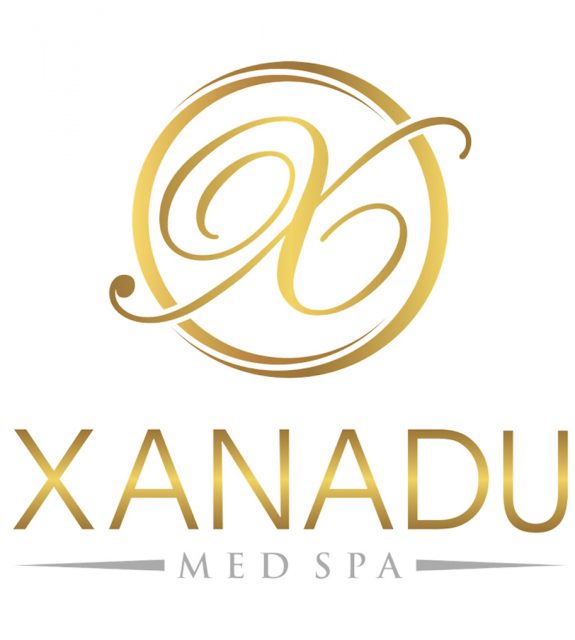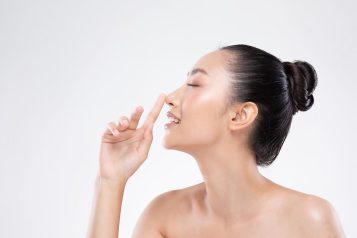A titan in the beauty industry, Bluemercury has charted an intriguing business trajectory that has catapulted it to one of the most recognized names in the world of cosmetics. It commended as an e-commerce business, profitably transitioned to brick-and-mortar in a time when retail flailed, and is now revolutionizing the industry with technological novelties.
This year, as a testament to its success, the company was named Top Retailer in the US by Total Retail Magazine. To find out how Bluemercury defied market adversary and grew into the go-to beauty authority, and to delve into the retailer’s innovative spirit, we chatted with Barry Beck, who founded it together with his wife Marla.
How did Bluemercury start and how did you manage to transition it from an e-commerce business to brick-and-mortar?
I started the company in 1999 and it was the height of, sort of, the first internet. I was in a different business. I had a maintenance company – it was called US Maintenance – and I sold it to a Fortune 500 company. The internet boom came and I pitched every venture firm the idea of selling cosmetics on the internet. At that time, no one was selling luxury cosmetics on the internet. I knocked on the doors of everyone I knew and I raised $1 million in two weeks with just the idea. That was the start of Bluemercury.
I started to build our website and the organization around myself and I had 20 employees before I even had our first sale. Sixty days after incorporating the company, I realized there were three other competitors out there, each with $10 million in funding, which was 10 times what we had. So, what I did, I went to raise more money and I was unable to do it because of the other competitors. Our company had a lot of going out but nothing coming in. And then, all of a sudden when I thought that things couldn't get worse, Nasdaq stock market crashed and all the venture firms stopped investing.
The truth is I was in trouble. I had the company in Georgetown, on M street, in Washington D.C.. And one day, I was going out for lunch and I was walking down M street and I came across a small beauty boutique that really just carried a couple of interesting brands. At that time, no one had heard of these brands. That was my Aha! moment. I would like to say that a light bulb went off in my head but it was more like fireworks and I realized that every product was taken out of the department store – kitchen goods by William and Sonoma, furniture by Pottery Barn and gadgets by Best Buy. I thought to myself why not cosmetics. I bought that store in Georgetown. At that time, cosmetics were only sold at department stores or drug stores like CVS, so there was no free-standing beauty boutique nationally. The store provided steady products to the website and I ran them simultaneously.
You started expanding pretty fast. What made you do so?
I focused on store growth. I opened a second store in Dupont Circle. The next big thing for us was – with two stores in Washington, D.C., and then I decided the most precious recourse I had was time, so I wanted to see if I can try in a different city. I grew up in Philadelphia, so we opened a third store on Walnut Street, which is one of the best streets in Philadelphia.
It was a historic building and I couldn't get a sign on the building. The first customer that came in on the first day spent more than $2,000 dollars. She looked and said, "This is the greatest thing that ever happened in Philadelphia. I do not have to drive to the mall anymore." And, she went to write a check and she looked up and said, "There is no sign. What do I call this place." At that time, I turned to my wife and partner Marla and I said, "Wow, I think we really have a business."
We started to really open up stores at a rapid pace. I think by store five or six, we started to gain more notoriety as an alternative to the department store in the mall and we became something known as the "Starbucks of cosmetics." That is how the company transitioned from being an internet company to a physical-world company. And now we are shifting back to becoming a technology business, which so interesting.
What are some of the most interesting aspects of technology that you are looking to develop?
I think we have a couple of really interesting technology developments. It is really based around the artificial intelligence (AI) mirror and it is really, really exciting. With the AI mirror, customers can come in, pick up any product in the store and scan it on the mirror and get real-time reviews from clients around the world. They can get information on the product, or how-to videos. Then, there is a second layer on top of this, which is that we are really pioneering bagless shopping. A customer can come in, scan a product on the mirror and have it delivered to their home later that day when it is convenient for them. This really caters to people who live in NYC or LA or Miami, who are really on the go and so busy – we really focus on the busy professional woman – the urban superwoman or even the suburban power mom, who is always on the go and busy.
But what we are pioneering right now that is even more interesting are two things. Number one, if you opt in, we will put a tracker on your phone and we can meet you anywhere in the city. Say, you are on your way to a black-tie and you needed something to cover up a blemish, you can then re-order our product from our mirror while you are on the go anywhere in NYC, and we can meet you on the corner, apply your product and go to your black-tie.
Number two, we are also working on a social-media shopping component, which will be launching soon. We will actually beam, if you wish so, your potential purchase on your social networking channels. So, let's say you try a lipstick and you want to show it to all your friends – we will let you through the AI mirror to show yourself on your social-media channels and get opinions in real time. It gives a whole new meaning to term "peer pressure."
The last thing we are experimenting with is to bring Facebook straight to the shop. We can beam Facebook likes for each product, and they can be dynamic, changing as the day goes on.
How are your customers reacting to these innovations?
The more urban markets – Philadelphia, NYC, Miami, Chicago, LA – are quicker to adapt to these fancy technology that we are deploying now. But, of course, we also have our legacy system. We actually have regular devices where you can opt to ship your product home. Some people are still loving legacy systems – they want to come to the cash register and purchase there. It is more in the suburban markets that we are seeing that. And, of course, we are here to accommodate them too, but I think that any retailer like us wants to bring their customers from the legacy systems to the newer technology, and we are working on that. But, of course, we love our customers and I think for us it is not really what we want – we want to be out there, nursing our clients and creating a better, more engaging shopping experience in the way they want to shop. If they want to shop on the internet – fine; if they want to do social media shopping on our AI mirror – great. We are here to serve our clients. We have always been disruptors in this industry and we have completely changed the way cosmetics is sold. We will continue to see the white space and we always be the best in the world in giving beauty advice, which is our mission.
Having the right people on the ground to give beauty advice is crucial. How do you go about assembling the team?
I always set out to hire only beauty junkies that want a career with us. We are a company of beauty junkies. Our customers are beauty junkies. When I came into the industry in 1999, people in cosmetics were mostly part-time workers that had minimum wage and worked on commission. I had a theory – what would happen if I gave them full-time work and benefits and a true career path. What happened is that we have Bluemercury beauty experts who have worked here for 15, 16, 17, 18 years. What happens is we retain their knowledge, they know our customers by name, they even know our customers' dog's names and children's names. We ended up with the most knowledgeable beauty experts in the industry - no question. Our beauty experts are so knowledgeable I like to call them "human google for beauty products."
Think about the statistics – what really sets our customers apart is that more than 50 percent of the time, a customer comes into Bluemercury looking for a solution to a beauty problem or a product with a specific attribute. A customer comes in and says, "Do you have hairspray that doesn't feel sticky?" or "I am starting to get dark circles under my eyes – can you help me solve that?" Only 25 percent or less of the times a customer comes into Bluemercury looking for a brand or a product within a brand. We need to be exceedingly good problem solvers. This has really become our weapon, a real major source of our sustained competitive advantage.
Talking about innovation and technology, what new products and upgrades you are looking to develop?
We have a naturals pilot program going on. We started our own naturals pilot with 28 locations nationwide with a brand-new crop of natural products. It consists of separate fixtures in store for product offerings and brands that are free of harsh chemical and preservatives. Some of these brands are Juice Beauty, One Love Organic, Indie Lee. So this is really a new big trend because, right now, millennials are the largest population of vegetarians.
Another thing is that our proprietary brands have become a run-away success – M-61 Powerful skincare and Lune+Aster color cosmetics. M-61 is home to the number one selling product in all of Bluemercury. We have nearly 200 stores, we are the best in the world at our job - luxury cosmetics and spa - the number one selling products we created is one of our proprietary brands - M-61 PowerBlow Peel Pads – we sell one every eight seconds.
Why did we create M-61? The millennials are the largest generation of vegetarians in history and immediately after the Great Recession, we started to see this trend that our clients were looking for natural products that didn't have the harsh chemicals. So, they wanted the natural products but they also loved their doctor brands that had acids but they didn't like the harsh ingredients that were in the doctor's products. The problem at that time was that the natural products really had terrible packaging, they smelled bad and most of all, they were not effective. So, I saw an opportunity. M-61 bridged the gap between the doctor products that were really effective and the natural products that were all-natural but didn't really work well. We included some of the doctor's ingredients - like Glycolic and salicylic acid - but along with Vitamin C, Vitamin K, Vitamin A.
I also created Lune+Aster Cosmetics, which is a vegan, gluten-free brand. It is really created to get the urban superwoman and the suburban power mom out the door in 5 minutes, feeling polished and professional. We are really a brand based on authenticity, so we used to carry only makeup artists' brands. But the challenges is these are complex brands. It is hard to use makeup artists' brands – they are used on photoshoots and runways. So, we really wanted to create a vegan and gluten-free alternative for women, so they could get their makeup done on the way to work in five minutes.
Today, more and more men are turning to cosmetics. Do you see this trend in your stores?
Forty years ago, a book came out titled "Real Man Do Not Eat Quiche." You know what I eat quiche. We are really for the first time seeing men making purchases in the makeup category. So, if men previously purchased shampoo, shower gel, shaving cream, and aftershave, they are now coming in for bronzer, concealer and even eyebrow gel. We are at the very beginning of this trend. We are seeing this trend particularly in Miami, New York and LA. Men now understand that good grooming now extends beyond a nice watch and great attire. Our male customers now realize that their image is forever. In this Instagram world, our clients feel that their image is permanent and they have to look great. A lot of our clients are on TV, so they know that they have got to look good. It is a really exciting trend that we are seeing now.
What are your expectations for 2018?
We had the best year in the company's history and next year we are expecting the same – we are going to open more stores. We are expecting a record-breaking year on the internet – our e-commerce business is growing at a supersonic space.
We are to remain true to our mission – to be the best in giving beauty advice. In our sales, the company is growing in double digits. The company is performing better than ever and a trend that I am seeing is two-fold. Number one is product proliferation. The cost of starting a company has never been lower; there are more beauty products entering the market today than ever. We are inundated with new products all the time, so oue clients will need Bluemercury to continue to make sense of the products, to give them advice and good judgement. Number two is that the process of buying beauty products is a complex journey and Bluemercury is going to be there to help our customers to make sense of it.
Images courtesy of Bluemercury






